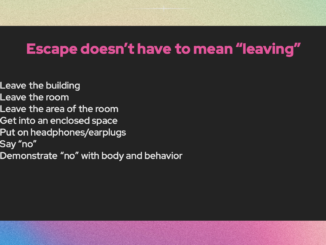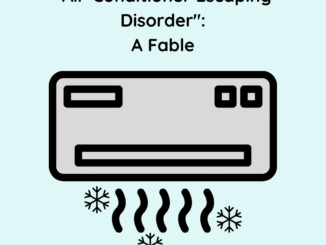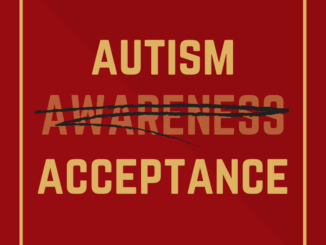I mentioned in an earlier post this month how a lot of adults will get diagnosed with autism later in life, especially if they have a child who is diagnosed as a child. They’ll recognize traits in their kid that they shared when they were a kid.
I remember reading a book when I was a teenager about a man who was diagnosed with autism (Asperger syndrome at the time, although that language/diagnosis is out of date) when he was, I believe, around 40 years old. When I read it, I was shocked. But that’s because I was still working from an old framework, a limited and narrow stereotype of autism that only accepted kids who present a specific way and would be hard to miss.
The Autistic community is widely accepting of people who figure out later in their life that they are autistic. Even more, the Autistic community is widely accepting of self-diagnosis. There are a number of reasons why a person might not be able to get professional diagnosis: the expense of going through psychological testing; if they’re still living at home they might have parents who are opposed; the psychologists they have access to might be working from an outdated model and not recognize it in them. (For example, there has historically been some difference between how autism presents in people who are socialized as male vs female, so women or nonbinary/trans people who were raised as women may not fit into the stereotype of autism that an outdated medical assessor would expect.)
There are a number of good reasons to seek professional diagnosis. Some of these might include being able to get accommodations at school or at work. But some other reasons for figuring out an autism diagnosis, like improving self-understanding or being able to find like-minded people in real life or online for support, don’t require a professional diagnosis to be able to happen. It can be very validating to have a professional agree, and, to be clear, in the case of a child who is still school age and is actively struggling to get support from professionals that they need, there should absolutely be a professional diagnosis involved. But if you’ve been reading any of these posts this month and thinking “oh wow, this sounds a bit like me”, it might be worth exploring some self diagnostic tools. These are NOT intended to replace professional diagnosis. These are intended to help you think a little more specifically about neurotype, and maybe gain some insight into something that might have been hard for you or something you struggle with.
Self-assessments specific to the topic of Autistic masking (i.e., hiding traits when around others and then feeling free to “be yourself” when alone):
Self-assessments specifically relating to Autism presenting differently in women:
Tania Ann Marshall’s ASD in females
A comprehensive “Aspergers” (although an outdated term) test that gives results comparing social skills, romantic relationship skills, communication, perception, and talents, on both a neurotypical and an autistic scale from 1-10.



